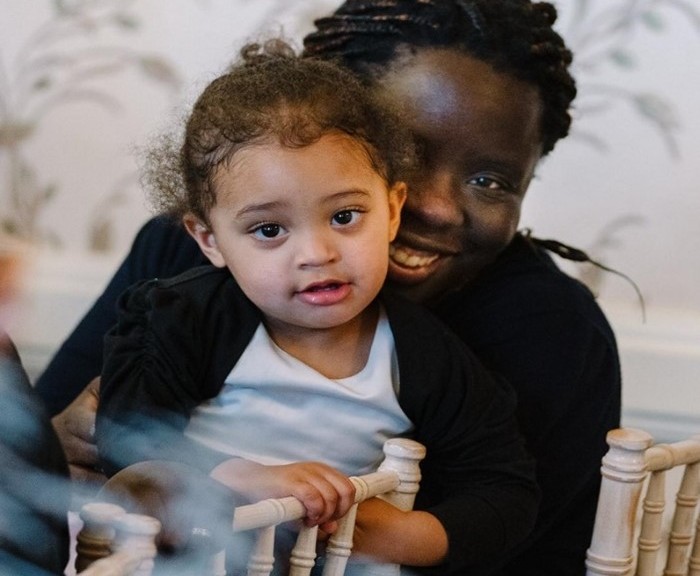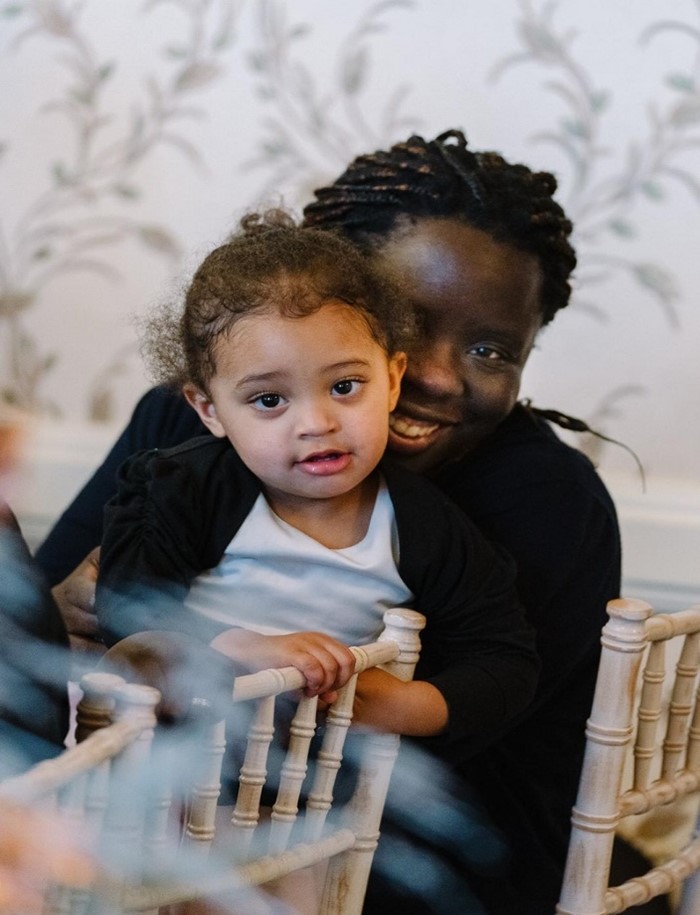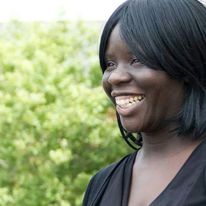Colina Wright is the Interim Student Voice Manager at the Students’ Association at the Highlands and Islands as well as an activist, campaigner, and an advocate for change. As part of Black History Month, Colina looks back at her own relationship with history – and forward to a more positive, united future.
I asked my beautiful, mixed race four-year old daughter to undertake a mundane task for me and her response was “I’m not your slave.”
Where had she learnt that, how had this language become so commonplace within our lives without any thought as to what it actually meant? At what point will that mean something to her? Will it ever?
My name is Colina Wright, my pronouns are she/her and I am the Interim Student Voice Manager at Your Students’ Association here at UHI. Whilst I am proud to be black, I must start by saying that I introduce myself as a woman that is black rather than a black woman, because my gender is most important to me. To me, whilst I wouldn’t say I’ve never experienced racism, I have never allowed myself to feel victimised based on the colour of my skin, whereas sexism is more prevalent and covert.
Growing up
I am black woman with my family immigrating from Jamaica back in the 1960s however I have no idea of our history further back than my grandparents. Growing up I did experience racism; fortunately I was never told to go home, which would have been confusing given that home was Nottingham, but I was asked why was I so dark. It bothered the pre-teen version of myself. I poured bleach in the bath and scrubbed my skin until it bled in an attempt to fit in…but the ironic thing was that this abuse was from other black children who should have known better. I decided that my skin colour was not going to stop me from achieving my aspirations and learnt to disassociate myself with the negativity that others wanted to put on me.
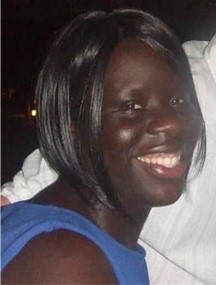
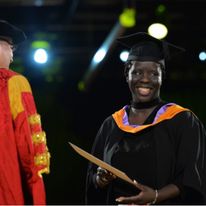
I went to university before the term BAME/BME was popularised. There definitely wasn’t an acknowledgement of any attainment gaps between white and non-white students and even if this was discussed, it was done behind closed doors, possibly through fear of being perceived as racist.
I recall an African history workshop organised for BAME students whilst I was at school, although we weren’t referred to as that back in the early 90s. I purposely chose not to attend, not because African history wasn’t important to me, but because I only saw the anger and hatred that resulted from these workshops; whilst knowledge is power, I saw black students feel the need to avenge our ancestors, blaming their white counterparts for something they were not personally a part of.
As Dr Martin Luther King said:
“Darkness cannot drive out darkness; only light can do that. Hate cannot drive out hate; only love can do that”.
We need to learn to love.
I don’t recall there being many other black students on my course – there can’t be a diversity problem if there isn’t any diversity, right? Regardless, I would not have believed it anyway. I would not be defined by other people’s perceptions of me and would let my work speak for itself. I left with a good honours (2:1), so what was the issue?
Justice
Black British teenager Stephen Lawrence was murdered before I went to university; I hadn’t really acknowledged what his death – or the lack of justice for it – meant. Whilst the term ‘institutional racism’ had been coined, it didn’t resonate with me and was something that just happened within the police force, right? If I didn’t get into trouble with the law then what difference would it have made to me?
But following the death of George Floyd in 2020, the Black Lives Matter campaign hasn’t been able to stop the murder of black people by the police and equality, diversity and inclusion training hasn’t stopped random stop and search initiatives targeting more black people. We are more conscious of these things and need now, more than ever, to be part of the culture of change.
History
History isn’t necessarily as long ago as we think. Slavery did not end with the Act for the Abolition of the Slave Trade in 1807, it continues today and may no longer be based on the colour of people’s skin, but is still very much about people believing they are superior towards another set of people. It is called oppression.
Apartheid, the civil rights movement, the Ku Klux Klan, lynchings, the wrongful imprisonment and death on those fighting for equality – these atrocities are based on the belief of being better than another set of people.
The great Nelson Mandela said:
“No one is born hating another person because of the colour of his skin, or his background, or his religion. People must learn to hate…”
History takes a long time to change…taking the knee in football games won’t bring back George Floyd, Mark Duggan, Stephen Lawrence or the hundreds of other black lives lost at the hands of white people and police; many of whom have never been held to account for their actions. Taking the knee won’t erase the decades of scores of people wrongfully imprisoned, and it won’t remove the stain of slavery from history. I think actions like these do very little to address such issues …but what else does?
Most importantly, Mandela’s quote continues, reminding us:
“…and if they can learn to hate, they can be taught to love, for love comes more naturally to the human heart than its opposite.”
That’s why I think it’s important to acknowledge black history and continue to work in collaboration as a society. Whilst we can’t erase the atrocities of the past, we can build a better future, together.
I am proud to be black and to be able to reflect on some amazing role models throughout history that have carved a path for me and others like me. Rosa Parks is inspirational, being sick and tired of being sick and tired and taking action to address this, regardless of the personal consequences (Rosa along with the Suffragettes and Martin Luther King Jr are reasons I always vote – they didn’t have a chance but fought for me to be afforded the opportunity!). Nelson Mandela, Barack Obama, Lewis Hamilton, Oprah Winfrey and so many more.
Moving forward – what can we do?
While it is no longer right to suggest that people of colour should be colour-blind as I had been in my past, there is an issue to be acknowledged, and it’s not just within the police force.
Within the world of academia we can start to challenge previously held values and positively attempt to de-colonise the curriculum and institutional norms. We can challenge the status quo and show leadership by respecting alternative perspectives and embedding them within our learning and teaching.
Anonymous marking does not mitigate BAME students being adversely affected in the unexplained/unexplainable grade differences. There are so many occasions where black people are disproportionately affected – underrepresented in positions of authority, overrepresented in mental health statistics, suicides, in prisons, in police deaths.
I ask that collectively we continue to challenge things that we can change. My plea is that you contribute in a way that is comfortable for you. Continue to ask about attainment gaps and the institution’s response, about decolonising the curriculum, about the recruitment and progression of black staff. I ask that students engage with their local Students’ Association and become Student Voice Reps and stand in the elections and engage in sports teams and societies.
“If you can see it, you can be it” and I’m here to hopefully show that it may take some time but there is and will always be a place for us if we keep pushing. And if you can’t see it, I ask you find the strength to forge your own path and to push yourself to achieve – for your own sake but also remembering that there are others admiring you from afar.
I hope you have an enjoyable Black History Month and beyond.
Your Students’ Association offers UHI students the opportunity to join Student Networks that provide a nurturing environment where individuals with diverse backgrounds and interests can come together to celebrate their unique identities and experiences. They offer a safe space for students to explore their passions, values, and cultural heritage. Click here to find out what networks are available.
